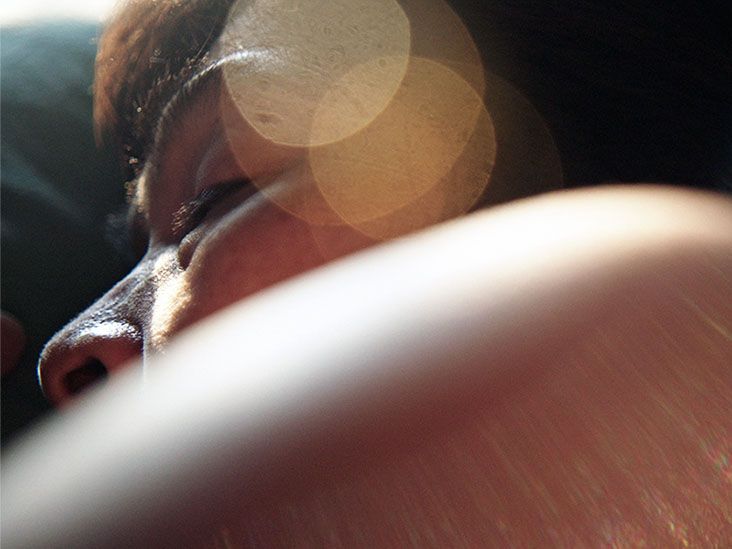Being self-absorbed means a person is hyper-focused on their own feelings and experiences to the extent that it causes them to lack attention to others.
Self-absorption can occur for various reasons. These range from defense mechanisms and past experiences to certain mental health conditions.
Working with a mental health professional can help someone overcome self-absorption and have more balanced relationships.

Dr. Menije Boduryan-Tuner, psychologist and founder of Embracing You Therapy, spoke to Medical News Today about self-absorption.
Dr. Menije stated that being self-absorbed is “a state where you are hyper-attuned to your own experiences, feelings, and thoughts.” She continued, noting that this may appear like a person is simply being aware. However, self-absorbed behaviors can be unhealthy as they can cause the individual to lack attention to other people’s feelings and thoughts.
Self-absorption is considered a transdiagnostic process. This means it is a mechanism that spans across multiple mental health conditions. It may be a risk factor or a maintaining factor for the condition. Self-absorption is reflective of self-focused processing that is excessive, inflexible, and sustained.
Dr. Menije listed some common signs of self-absorption:
- Often talking about their own experiences with little regard or interest for other people’s experiences.
- In conversations, there may appear to be little or no room for other people to share or say much.
- When it comes to conflict, self-absorption can create extra challenges as the person will generally make their wants and feelings center, disregarding the feelings of others.
- When it comes to compromise, a person who is self-absorbed will often hold their experiences higher than those of others.
There are various reasons a person may experience self-absorption.
Trauma
Trauma experiences can make it difficult for an individual to trust others. This can lead to self-absorption or the perception of self-absorption.
Trauma can also cause a person to feel that they cannot rely on others and need to look after their own needs above anything else.
Other past experiences
If a person has had past experiences where they felt rejected, abandoned, or judged, they may use self-absorption as a defense mechanism. This is to protect themselves from future hurt or rejection by avoiding any kind of vulnerability and making it about themselves, says Dr. Menije.
Mental health conditions
Self-absorption or the appearance of self-absorption can be part of certain mental health conditions.
A 2020 paper notes that the inability to see the perspectives of others may be linked to higher levels of depression and neuroticism.
People with antisocial personality disorder (formerly known as sociopathy)
Other conditions that may limit a person’s social skills, such as autism spectrum disorder or social anxiety, may feel like self-absorption to those around them.
Mental health resources
Visit our dedicated hub for more research-backed information and resources on mental health and well-being.
Dr. Menije gave some tips to help individuals cope with someone close to them who might show signs of self-absorption.
First, it is important to learn the signs of self-absorption. Learning these signs can help a person to be more informed. However, Dr. Menije notes that individuals should not use phrases like “You’re so self-absorbed” as an attack on the other person. Simply noticing the difficulties they are experiencing can help with empathy and setting boundaries.
Once a person understands the signs of self-absorption, they can better focus on healthy boundaries and conflict resolution skills. This can help them to better advocate for themselves.
Dr. Menije noted that individuals who are experiencing self-absorption often seek help to work on it because they have lost relationships or been confronted by someone close to them.
She stated that it is important for these individuals to approach therapy for self-absorption from a place of self-compassion. This is important because often behind self-absorption lies an unstable and fragile sense of self.
She continued, saying that the goal is to learn to take accountability for past behaviors, not blame, in order to be able to approach others in a more genuine, respectful, and healthy way.
Quotes from an expert
“Remember that letting go of your self-absorption does not mean your needs will not be considered or attended to. The goal is to have more balanced relationships where it is more a win-win, not a win-lose.” – Dr. Menije
Self-absorption is when a person is hyper-focused on their own feelings and experiences to the extent that they lack attention to others.
There are various reasons a person may experience self-absorption, including past experiences and trauma, as well as certain mental health conditions.
Learning the signs of self-absorption can help others to be empathetic and set healthy boundaries.
Individuals experiencing self-absorption can seek help from a mental health professional to learn to become accountable for past behaviors and be more respectful of others.


